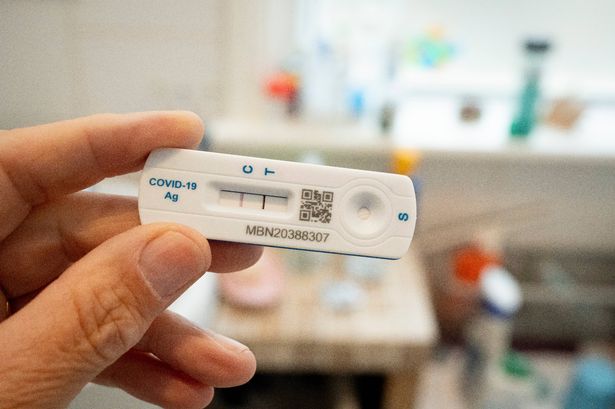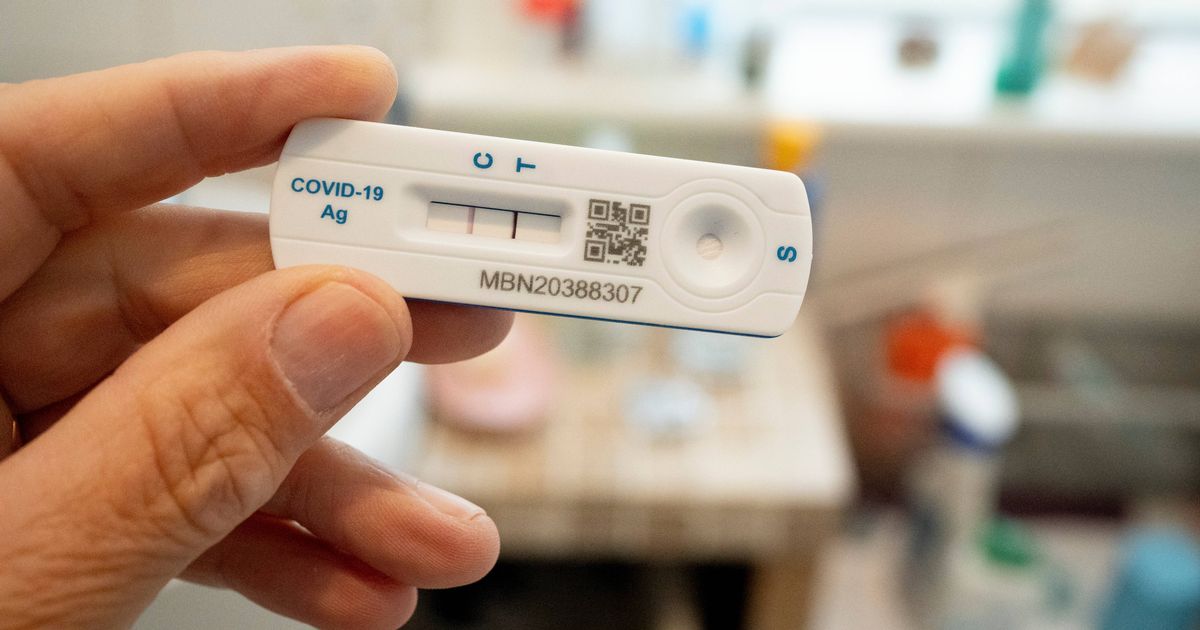The fast spreading new Covid variant causes a distinctive pattern of symptoms Doctors are warning about the exact order in which symptoms first appear(Image: Richard Baker/In Pictures via Getty Images)
Doctors are warning about the exact order in which symptoms first appear(Image: Richard Baker/In Pictures via Getty Images)
A fast-spreading new Covid variant is sweeping across Northern Ireland which a doctor is warning causes patients to exhibit ‘peculiar’ early symptoms.
There has been a growing concern recently around the spread of the new Covid-19 strain, known as ‘Stratus’, which has two variants, XFG and XFG.3 and which now accounts for 45% of all known infections in Northern Ireland.
XFG is a hybrid of two omicron strains, LF.7 and LP.8.1.2, according to the World Health Organisation (WHO). It was first discovered in January of this year, and by June, the WHO declared XFG to be ‘under monitoring’ due to its ‘increasing proportions globally’.
READ MORE: 13 common health concerns your pharmacist can treat with needing a GPREAD MORE: The 18 Covid symptoms everyone in Northern Ireland must know
Local data shows that overall Covid cases are on the rise in Northern Ireland compared to recent weeks. The current most common SARS-CoV-2 variant in Northern Ireland is XFG.3.
In its latest respiratory surveillance report from September 24, the Public Health Agency says that during week 38 of 2025 (September 15-21), the number of new Covid-19 episodes increased, with 204 unique episodes identified compared with 108 in week 37.
The highest Covid-19 episode rate in week 38 was in the 75+ age group and was highest in Antrim and Newtownabbey and Mid and East Antrim. In the eight weeks from July 21 to September 14, 216 Covid-19 samples were sequenced. Of these, 66 were XFG (30.6%) and 58 were XFG.3 (26.9%).
While it doesn’t appear to cause more severe illness, Stratus spreads faster than previous strains and may present slightly differently in patients. What makes it unusual is the order and type of symptoms it produces.
Dr Kader, who shares health advice on TikTok as @ask.doctor.k, highlighted that this variant often affects the ear, nose and throat first, before progressing to digestive problems like nausea, vomiting, bloating and acid reflux.
The doctor said: “Here’s what you need to know about the new Covid variant. It’s called Stratus or XFG, and actually the symptoms are a little bit different when compared to the previous variants. The new variant seems to be starting with ear, nose and throat symptoms, so most people are complaining about a really hoarse voice or a super sore throat. It also seems to present with more GI symptoms. A lot of people are complaining about nausea, vomiting, bloating [and] acid reflux.”
Dr Kader warned that while Stratus often causes a “milder” infection, it is highly contagious, explaining: “You may have noticed that everyone is getting sick this week, and we’ve seen a huge rise in Covid cases in hospital patients, and part of the reason why infections are spreading fast is because the weather is changing, it’s getting a bit colder, people are staying indoors more and just passing the bugs to each other.”
To reduce the risk of infection, he recommends:
- Washing hands regularly
- Keeping homes well ventilated
- Considering wearing a mask in crowded places
He also emphasised the importance of staying home until symptoms improve – advise mirrored by the official NHS guidance on Covid-19.
COVID-19 symptoms can include:
- a high temperature or shivering (chills) – a high temperature means you feel hot to touch on your chest or back (you do not need to measure your temperature)
- a new, continuous cough – this means coughing a lot for more than an hour, or 3 or more coughing episodes in 24 hours
- a loss or change to your sense of smell or taste
- shortness of breath
- feeling tired or exhausted
- an aching body
- a headache
- a sore throat
- a blocked or runny nose
- loss of appetite
- diarrhoea
- feeling sick or being sick
The symptoms are very similar to symptoms of other illnesses, such as colds and flu. Most people feel better within a few weeks, but it can take longer to recover. For some people, it can be a more serious illness and their symptoms can last longer.
Try to stay at home and avoid contact with other people if you or your child have symptoms of Covid-19 and either:
- have a high temperature
- do not feel well enough to go to work, school, childcare, or do your normal activities
You can go back to your normal activities when you feel better or do not have a high temperature.
If your child has mild symptoms such as a runny nose, sore throat or mild cough, and they feel well enough, they can go to school or childcare.
Most people do not need to take a COVID-19 rapid lateral flow test if they have symptoms.
But if you choose to do a test and the result is positive:
- try to stay at home and avoid contact with other people for 3 days after the day the test was taken if you or your child are under 18 years old – children and young people tend to be infectious for less time than adults
- try to stay at home and avoid contact with other people for 5 days after the day you took your test if you are 18 years old or over
- avoid meeting people who are more likely to get seriously ill from infections, such as people with a weakened immune system, for 10 days after the day you took your test
 Join our Belfast Live breaking news service on WhatsApp
Join our Belfast Live breaking news service on WhatsApp
Click this link or scan the QR code to receive breaking news and top stories from Belfast Live. We also treat our community members to special offers, promotions, and adverts from us and our partners. If you don’t like our community, you can check out any time you like. If you’re curious, you can read our Privacy Notice.
For all the latest news, visit the Belfast Live homepage here and sign up to our daily newsletter here.
